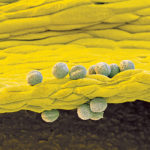Keep the canola coming. In 2014 the Canola Council of Canada unveiled its plans to produce 26 million tonnes of canola annually and achieve an average yield of 52 bushels per acre by 2025. The yield figure and tonnage grabbed most of the attention, but the council also has lofty plans for specialty canola oil. […] Read more
Tag Archives Western Canola & Pulse Crops Producer

This company isn’t horsing around with camelina
For many horse owners, their animals are like family. And in some cases, they’re more important than family. That’s why horse owners, like pet lovers, will spend almost any amount on their animals, including $60 for 3.8 litres of camelina oil — as a feed supplement. “Our sales are continuing to grow every month from […] Read more

Genome editing critical for boosting oil content & yield
When it comes to boosting oil content and yield, the solution appears to lie in slightly altering a crop’s genetic makeup. One company, Yield10 Bioscience, is already doing this, using an advanced form of genome editing. It allows researchers to precisely delete genes in a plant’s DNA that might be hindering yield or insert genes […] Read more
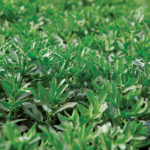
New fababean varieties hit prairie market
The development of low vicine and convicine varieties of fababeans presents an opportunity for prairie growers and processors. While the agronomic benefits of including fababeans in a rotation are well known, worldwide production has largely been at a standstill for the last 40 years. The crop fixes nitrogen more than other crops, improves soil structure […] Read more
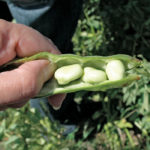
Research aims to bolster nitrogen fixation for fababeans
By diving deep into nitrogen fixation, researchers are on the verge of potentially making fababeans a more palatable pulse to grow. They have been screening a variety of rhizobium strains at the University of Saskatchewan to see which ones work best. A rhizobium strain is the key ingredient in an inoculant that allows for nitrogen […] Read more
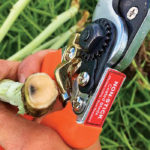
Plant breeders battling blackleg with disease resistant varieties
Life science companies have much to brag about when it comes to the resistance they’ve deployed in Canadian canola varieties, which has successfully kept blackleg pressure relatively low in this country. In the early 1990s, blackleg throttled canola production by as much as 50 percent in some fields. Resistant varieties then became available to producers, […] Read more
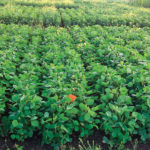
Soybeans & glyphosate-ready canola don’t mix
Most of those expanding soybean acres we see each year are on ground that had recently grown glyphosate-ready canola, and that presents a big problem. Most desirable soybean varieties are glyphosate resistant. Seeds from those previous glyphosate-tolerant canola crops can remain viable in the soil for five years, surprising producers with volunteer canola in what […] Read more
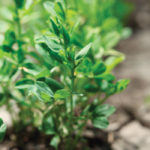
Soybeans could replace pulses in rotation
Growers who want to extend their pulse rotations but do not want to reduce the amount of nitrogen fixed in their soil by a legume should evaluate soybeans as a cropping option. Disease pressure in the prairie pulse crops has waned over the past two growing seasons under drier conditions, but pea and lentil growers […] Read more
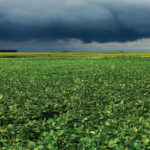
Study more soybeans: researcher
There needs to be a new priority in western Canadian soybean breeding programs, says an extension specialist. The greatest need used to be developing early maturing varieties suitable to the shortened growing season on the Prairies. There has been good progress on that front, said Sherri Roberts, crop extension specialist with Saskatchewan Agriculture. “Every year […] Read more

Measuring blackleg’s impact on profitability
Blackleg may not be the most yield-robbing fungus that prairie canola producers face, but it is certainly a concern. “Growers shouldn’t assume that blackleg doesn’t have a repercussion for their overall profitability,” said Clint Jurke of the Canola Council of Canada. As the prevalence and severity of blackleg crept up over the past decade in […] Read more

